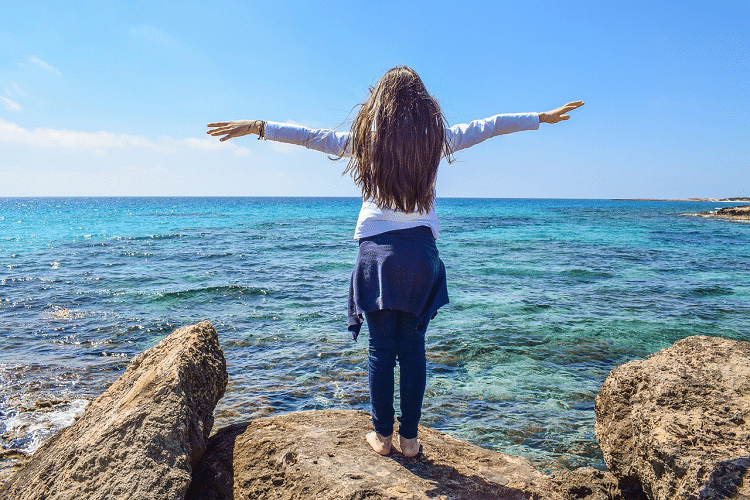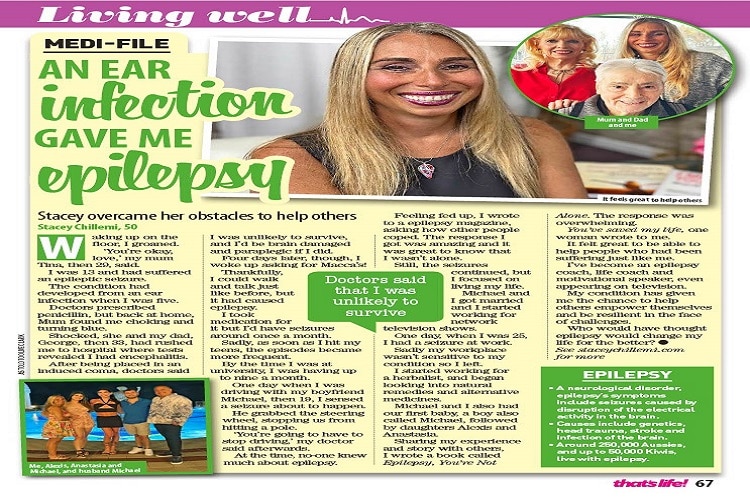
Coping with Coronavirus for People With Anxiety
In this article, you’ll learn and discover how to cope with the coronavirus when you have are living with an anxiety disorder.
Anxiety disorders are the most common mental illness in the U.S., affecting 40 million adults in the United States age 18 and older, or 18.1% of the population every year. Anxiety disorders are highly treatable, yet only 36.9% of those suffering receive treatment.
Another important fact that people don’t realize is that there is more that one specific type of anxiety disorder that affects all these millions of people living in just the United States and around the world.
Table of Contents
Different Types of Anxiety Disorders
Generalized Anxiety Disorder
Generalized Anxiety Disorder (GAD) is characterized by persistent and excessive worry about a number of different things. People with GAD may anticipate disaster and may be overly concerned about money, health, family, work, or other issues. Individuals with GAD find it difficult to control their worry.
Obsessive-Compulsive Disorder (OCD)
Obsessive-compulsive disorder is characterized by unreasonable thoughts and fears (obsessions) that lead to compulsive behaviors. OCD often centers on themes such as a fear of germs or the need to arrange objects in a specific manner. Symptoms usually begin gradually and vary throughout life.
Panic Disorder
Panic disorder is a type of anxiety disorder. It causes panic attacks, which are sudden feelings of terror when there is no real danger. You may feel as if you are losing control. You may also have physical symptoms, such as
- Fast heartbeat
- Chest or stomach pain
- Breathing difficulty
- Weakness or dizziness
- Sweating
- Feeling hot or a cold chill
- Tingly or numb hands
Panic attacks can happen anytime, anywhere, and without warning. You may live in fear of another attack and may avoid places where you have had an attack. For some people, fear takes over their lives and they cannot leave their homes.
Post-Traumatic Stress Disorder (PTSD)
Post-traumatic stress disorder (PTSD) is a mental health condition that’s triggered by a terrifying event — either experiencing it or witnessing it. Symptoms may include flashbacks, nightmares and severe anxiety, as well as uncontrollable thoughts about the event.
Social Phobia (or Social Anxiety Disorder)
A social anxiety disorder (social phobia) is when everyday interactions cause severe anxiety, fear, self-consciousness, and embarrassment in your life. People with this disorder fear being scrutinized or judged by others. This can disrupt a person’s life. Severe stress caused by this disorder can affect your daily routine, work, school or other activities.
The coronavirus is a terrifying time. The entire world is being affected by this virus. Countries including the United Stated is shutting down and thousands of people are contracting this virus and some are unfortunately dying from it.
The worst part is that no one knows whats going to happen. The fear of the unknown affects us all.
This is a scary time for everyone in our world. Now imagine if you have an anxiety disorder. These people struggle each day in their life trying to cope with the obstacles that endure their life on a daily basis.
Image trying to cope with coronavirus when you struggle with coping with anxiety?
For most people, not knowing what’s going to happen next is the hardest thing to deal with. The fear of contracting this infectious virus and how it can impact our lives and the people we love and care about fills us with fear, anxiety, stress, and depression. We don’t know how bad things are going to become however there are things we can do to cope with our anxiety, especially if you are struggling with an anxiety disorder.
Here are some tips to help you cope with your anxiety, fear, stress, and depression.
Focus On The Facts
Don’t focus on fake news. There are a lot of info out on the internet that is not true and exaggerated. For on reliable websites such as:
Yoga
Yoga postures, known as asanas, can help to decrease any physical discomfort you are experiencing that is caused by anxiety. Asanas help stretch, lengthen, and balance the muscles. The overall practice of yoga can elicit the relaxation response, allowing both the body and mind to gain a sense of calm and ease.
Music
Music Soothes Anxiety. Researchers have documented that listening to music can be effective in reducing high levels of anxiety. Investigators discovered music can be used as a distraction and is effective among those who can easily become absorbed in cognitive activities. Music may also improve mood and help with one’s overall well-being. Listening to music can help someone become relaxed. In fact, music therapy is often used with progressive muscle relaxation to reduce anxiety. Try going to a calming room, find a comfortable spot, add some relaxing sents into the room, close your eyes and clear your mind as you listen to this music.
Hypnosis Done at Home
Research has shown that hypnotherapy can help relieve stress, fear, and anxiety. It can also be used to help in coping with the symptoms of panic disorder. Hypnosis can bring awareness to the physical sensations, emotions, and cognitions associated with their attacks, such as chest pain, shaking, and fear.
Meditation
Meditation does help manage anxiety. While meditation isn’t a solution to stop anxiety, it is extremely helpful. Meditation helps slow down anxiety, helps the individual grasp reality and get a clear perspective, so they can think more objectively. Meditation can help people be less anxious.
Bottom Line
The coronavirus causes anxiety in everyone, however, if you suffer from a mental disorder or suffer from an anxiety disorder the worries of the coronavirus become a lot worse in that person’s mind.
A regular person who doesn’t have the disorder will think, ‘How am I going to pay my bills? What if I lose my job? What if I can’t pay my car payments? Then they will begin to start creating a strategic plan.
Whereas a person with an anxiety disorder thinks a little differently. They begin each sentence in their head with two words: What if,’ followed by the worst scenario they can possibly think up in their mind for each question they create in their brain.
This is where the anxiety sets in and can change your life for the worst. Every person’s goal should be to live a happy, healthy and productive life. To achieve this you need to let go of all those negative thoughts in your brain and focus on the positive things in your life.
Try the five tips above and if they don’t seem to help you then consider looking into receiving professional help.
Be safe.
Remember in order to help others and the people you love, you need to help yourself first.






